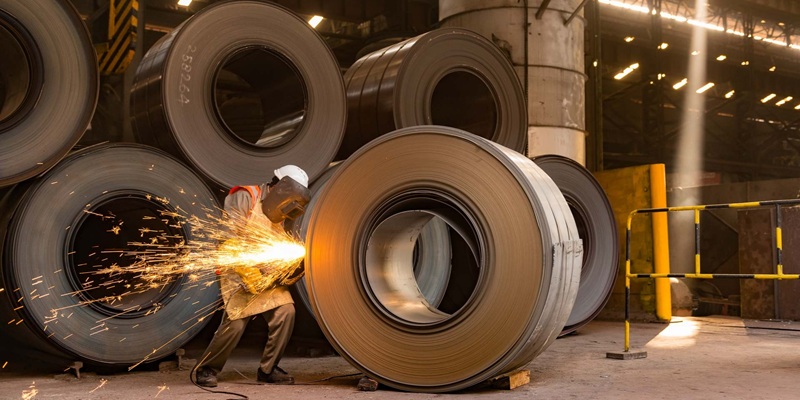Schedule a Call Back
IIM Bangalore and TBS Education host panel on future of aviation and aerospace
 Industry News
Industry News- Apr 21,25

At the 8th International
Conference on the Future of Aviation and Aerospace (FoAA), hosted by IIM
Bangalore in partnership with TBS Education, France, global leaders,
policymakers, and industry experts gathered to explore the next phase of growth
in one of the world’s most dynamic sectors.
The agenda encompassed India’s
increasing role in global supply chains, the potential of Make in India
manufacturing, and emerging innovations such as EVtol, drones, and AI-powered aviation
systems.
In his keynote, Sabyasachi Srinivas, VP, Collins Aerospace, deciphered India’s
growing R&D capabilities and the role of digital enablers like Generative
AI and Digital Twin technologies in transforming aviation.
Prof Rishikesha T Krishnan, Director, IIM Bangalore, highlighted the need to strengthen
human capital to fully realise the sector’s design and manufacturing potential.
Conference Chairs Prof G Shainesh and Prof S Raghunath noted FoAA’s evolution into a premier
knowledge platform over the past eight years. Prof Raghunath also addressed
India’s ambition to capture 10% of the global aerospace supply chain through
enhanced design and engineering capabilities.
Prof Christophe Benaroya, TBS Education, France, reflected on a decade-long
partnership with IIMB through the GMAE programme, which now boasts over 350
alumni in leadership roles across global aerospace firms.
The first panel on 'Exploring Market
Potential for Aviation' at FoAA 2025 featured Sunil Bhaskaran, Director – Air India Aviation Academy, Air India
Limited; and Prof Shainesh G, Conference Chair, IIM Bangalore.
Sunil Bhaskaran described the GMAE
programme at IIMB as a very important piece in developing leadership in the
sector as Bangalore is the hub of innovation and growth. “The impact of
aviation on the Indian economy is large. Some of the best airports in the world
are now in India. The aviation ecosystem is seeing tremendous growth with an
order book of over 1700 aircraft. In such a scenario, we need trained manpower,
and at our academy, we train pilots and engineers not just for India but also
for the developed world,” he said.
The questions from the audience ranged
from adoption of SAF in India, use of AI & ML in upskilling of pilots and
engineers, and training for ground crew, especially those working on the
tarmac, in aerospace safety.
The second panel at the FoAA 2025,
chaired by Dr Srinivasan Dwarakanath,
Director General, Aerospace India Association, brought critical attention
to India’s readiness not only to participate in, but to lead the global
aerospace value chain.
Panelists Anuj Jhunjhunwala, CEO, JJG Aero; F R Singhvi, Joint MD, Sansera
Engineering, and Kaushal Jadia, SVP & CTO, Cyient, explored India’s
potential to move from manufacturing to design, innovation, and self-reliance.
Signalling to rapid aviation growth as
a wake-up call for the domestic aerospace sector, Dr Dwarakanath said, “We need
a national aerospace roadmap and indigenous raw material capabilities”.
“Despite logistical costs and tariffs,
commercial aviation is growing. But regulatory and certification gaps still
slow us down,” added Kaushal Jadia. F R.Singhvi urged Indian firms to shed the
fear of failure and invest in R&D. “We must move from the colonial
throwback of being obedient followers to fearless innovators”. Meanwhile,
citing the progress in getting local raw materials approved, Anuj Jhunjhunwala
said, “Global players like Airbus are now seriously engaging with Indian
firms”.
At the ‘Make in India: The Way Forward’
panel of the FoAA 2025, chaired by Dr Kota
Harinarayan, Former Programme Director and Chief Designer, Tejas LCA, the
conversation turned toward India's imperative transition from build-to-print to
build-to-spec to achieve design-led leadership in aerospace.
Dr Harinarayan noted that with
steadfast industry collaboration, the Indian Air Force could operate an
entirely indigenous fleet within 15 years. “The next challenge,” he said, “is
scaling these successes from defense to civil aviation.”
Suresh Baroth, CEO, DELOPT, highlighted the necessity of serious capital infusion and robust
design-thinking education, and Sujaya Shashikiran, drawing from her experience
leading Hical Technologies as MD, reflected on building quality-driven
capabilities through global exposure.
Rajeev Kaul, MD & CEO, Aequs Pvt Ltd, detailed the firm’s two-decade journey
in cultivating domestic value creation, while Biju Nanukuttan, Flight Data Systems, spoke of deeper alignment
between academic institutions and industry to build long-term design and
systems-level competencies.
The panel on ‘EVtol and Drone:
Regulations, Safety & Mass Adoption’ at FoAA 2025 examined the push and
pull between technological momentum and regulatory readiness.
Amber Dubey, Senior Advisor, McKinsey & Company, opened the conversation with a reminder
of how far things have come. “Young start-ups have had drone policy rewritten
and 90 per cent of India is now green zoned. That is the power of a technology
whose time has come”, he said.
Prof Satya Chakravarthy, Founder, The ePlane Co, spoke of the progress on air
ambulances by his firm and urban EVtol systems, but pointed to the rigidity of
existing rules that are yet to keep pace with new technologies.
According to Sarath Chandra Gudlavalleti, CEO, NeoSky, “differentiation is key”
in AI and ML-assisted innovation, while Dr
Rahul Singh, Co-founder, ICATT, stressed the life-saving potential of
EVtols in emergency care and critical response.
Divya Manchanda, Chief-Airworthiness, The ePlane Co, mapped out a broader medical ecosystem,
where lightweight drones deliver essential medicines to remote medical centers,
and larger craft is capable of organ transport and patient evacuation in
difficult terrain.
Prof Christophe Benaroya, Head – MSc Program in Aerospace Management,
TBS Education, in conversation with
Suraj Chettri, Vice President & Head,
HR, Airbus, at FoAA 2025, talked about the challenges around talent
acquisition and retention, reskilling and upskilling, and employee engagement.
“Typically, we learn from hindsight and a black swan event like COVID
highlighted the faults of this learning model! We need people with foresight,”
he said.
In her recorded message, Prof Dr Cordula Barzantny, TBS Education,
touched upon the role of programmes like IIMB Exec Education's GMAE in
addressing the shortage of talent in the sector.
The final panel of the day on ‘AI &
Analytics: The Enabler & Game Changer’, chaired by Prof Raghunath S,
convened Uma Maheshwar, Chief Consulting
Engineer, GE Aerospace, and Vishak Raman, Vice President – Sales, Fortinet.
“This is an inflection point for the
sector,” said Uma Maheshwar, explaining how AI has transformed the aerospace
industry. Illustrating his point with examples of business outcomes of adopting
AI, he spoke about its value in predictive maintenance, optimisation of routes,
etc. “Along with adopting of AI, come cyber security risks,” said Vishak Raman,
suggesting ways of mitigating such risks through IT-OT integration or
convergence.
Meaningful connections were forged,
potential collaborations explored, and professional networks across global and
domestic players enhanced at the conference. The delegates believe the annual
conference serves as a vibrant platform to stay current with the latest
research, policy developments, and best practices that are driving the future
of aviation and aerospace.
Related Stories

India eyes $3 trillion industrial opportunity by 2035
Omniscience Capital emphasised that higher domestic consumption—fuelled by rising per capita income—and India’s target of $1 trillion in merchandise exports by 2030 will be major growth driver..
Read more
PLI schemes have had a major impact on several Indian sectors: Abhishek Malik
By encouraging domestic manufacturing, these programs have raised output, created jobs, and increased exports. Additionally, they have drawn large investments from both domestic and international fi..
Read more
Goa’s first electronics manufacturing cluster nears completion
Spanning over 597,000 square metres near the Goa-Mumbai National Highway, the EMC will offer various incentives to incoming companies through support from both the state government and the Ministry ..
Read moreRelated Products
Troop Comforts revolutionises military gear with indigenous innovations
Troop Comforts Ltd (TCL), a state-owned defence corporation, has recently received a request for proposal (RFP) from the Northern Command of the Indian Army for its indigenously developed military gea Read more














